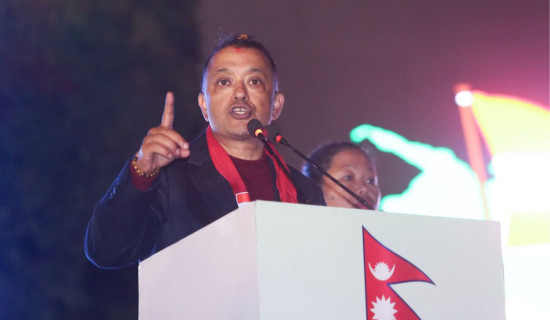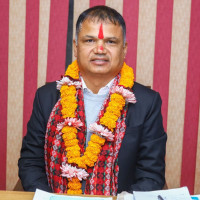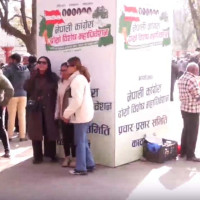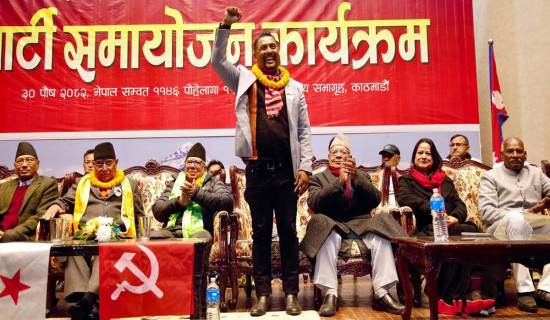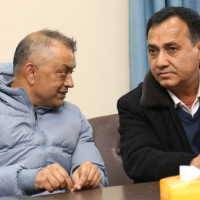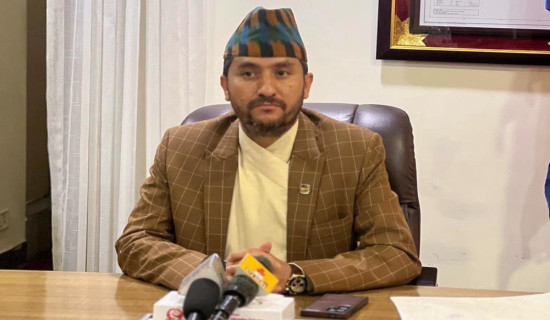- Thursday, 15 January 2026
Jajarkot earthquake victims ask government to build houses for them
BY A STAFF REPORTER,Kathmandu, Dec. 3: Jajarkot earthquake victims have demanded with the government to build houses for them. The 6.4 Richter scale earthquake on November 3 with its epicenter in Ramidanda, Jajarkot has left many without homes. After the immediate presence and response of the government, they have been living in hope of being assisted by the government.
The affected individuals have drawn the government's attention to the construction of temporary and long-term housing. Individuals whose houses were partially or completely damaged shared that they would be able to live in the village by making arrangements if the government would provide them shelter there.
Government's good work
Bijay Rana, a local of Bheri Municipality-1 waiting for government relief after his five houses got damaged in the earthquake, said, "We cannot build houses on our own. It is possible only if the government provides relief."
Rana who has been dependent on agriculture for living said that they might need to sell their properties if government relief was not sufficient.
Similarly, Jasbir Damai of the same locality, said, "The government has provided rice, lentils and tarpaulin. But it’s not enough. Instead of money, we need a house."
Appreciating the work done by the government, Damai said that helicopters sent by the government immediately after the earthquake to rescue the injured in Rawat village had minimised damages.
Tara Nepali, a local of Rawat village in Bheri Municipality-1, expected the government to build houses for them since food could be arranged from the neighborhood. She said that tarpaulins were not enough to survive during the winter. She said, "We cannot build houses on our own. If provided shelter, we could address other needs on our own."
Proper management for mothers
Harimaya Pariyar, who had given birth just before the earthquake, had been living in a shed in the neighborhood built for poultry farming. She has received tarpaulin, blanket, noodles, horlicks and other food supplies along with routine check-up at the health post.
Stating that the government had made proper arrangements for birthing mothers, Pariyar also stressed that the government should provide housing for the victims. She said that their pain would be reduced on receiving proper shelter.
Good disaster response from government
Jeevram Regmi, a representative of SOSEC Nepal, a partner institute with UNICEF, said that the disaster response was better than in the 2015 earthquake because of the immediate relief and the inspection visit of the President, Prime Minister and other governmental officials.
Stating that the government should make policies for sustainable development of the settlement and housing, Regmi said that the government should be active for constructing housing as it had been a while providing relief.
He said that the government should coordinate with development partners to help the victims and construct earthquake resistant houses for them. He said, "Since it's government's responsibility to build the houses, the government should coordinate with other institutes to help the victims."
Accessible toilets
Regmi said that easily accessible toilets had been constructed for the affected people for good health. A total of 12 modern toilets have been constructed in the village.



